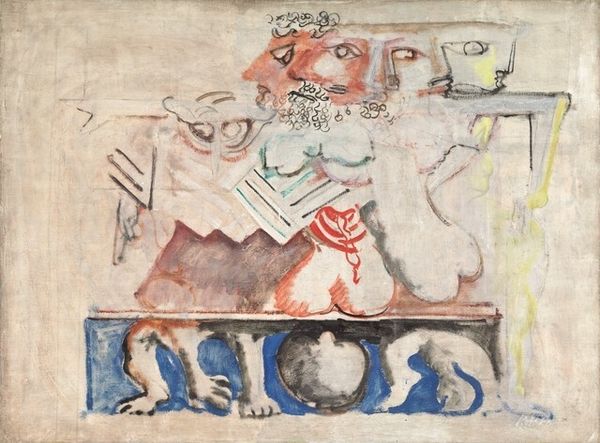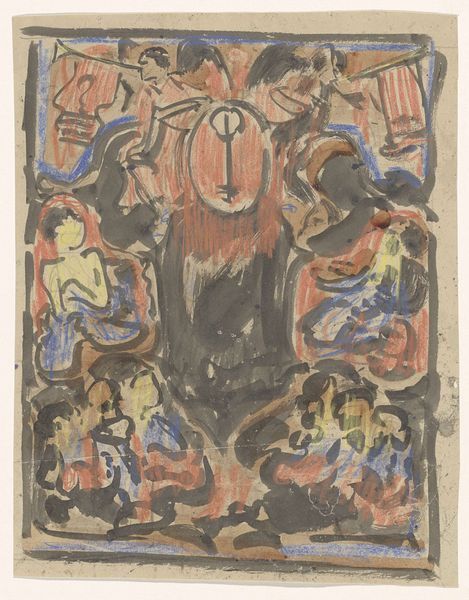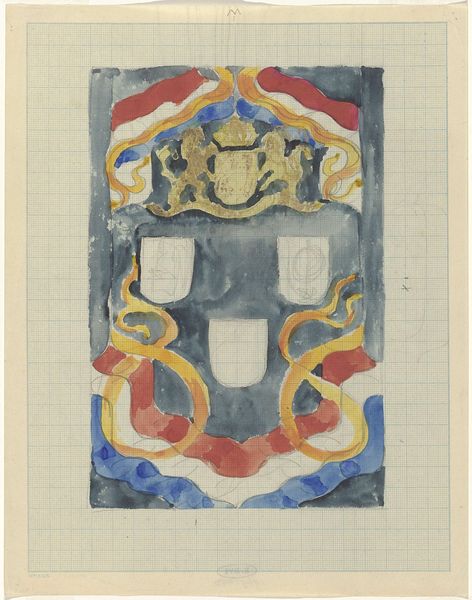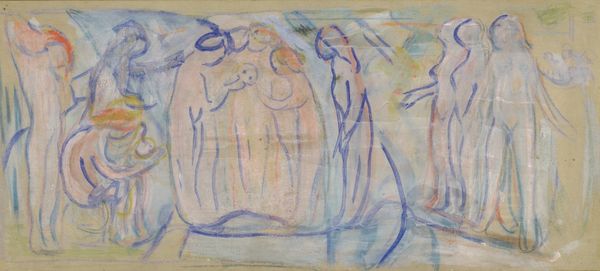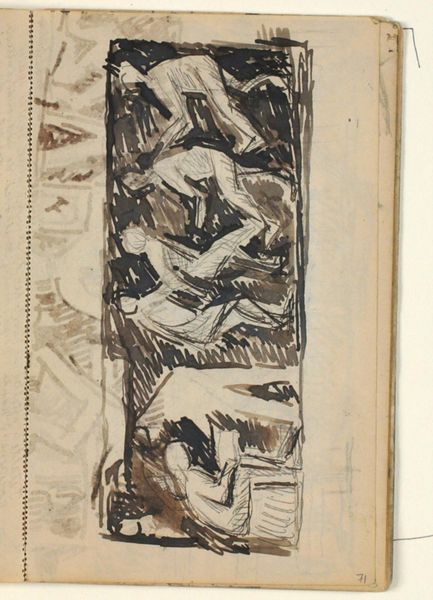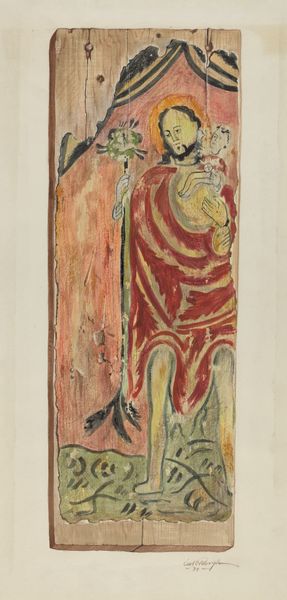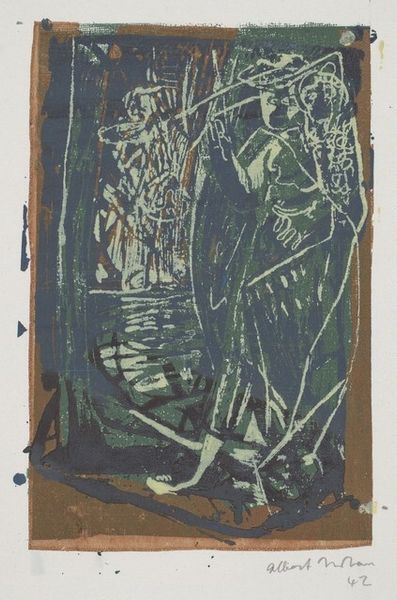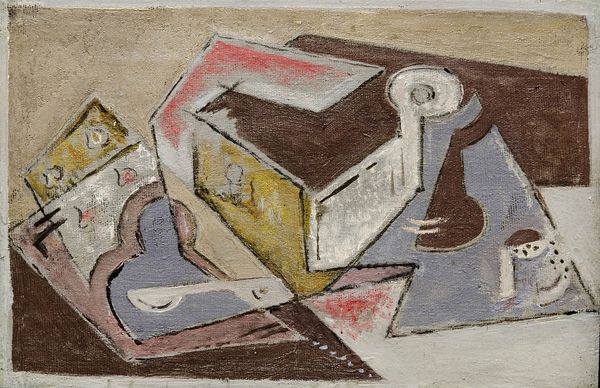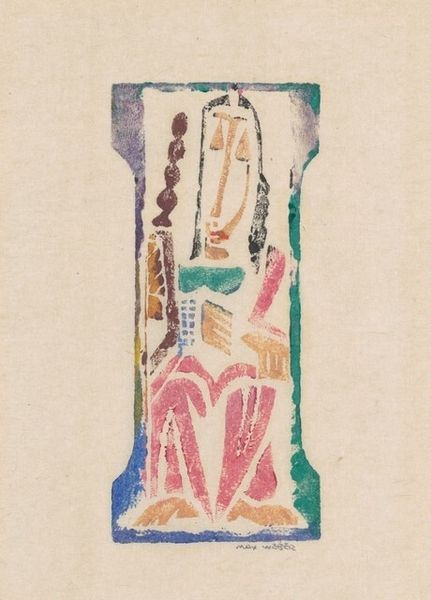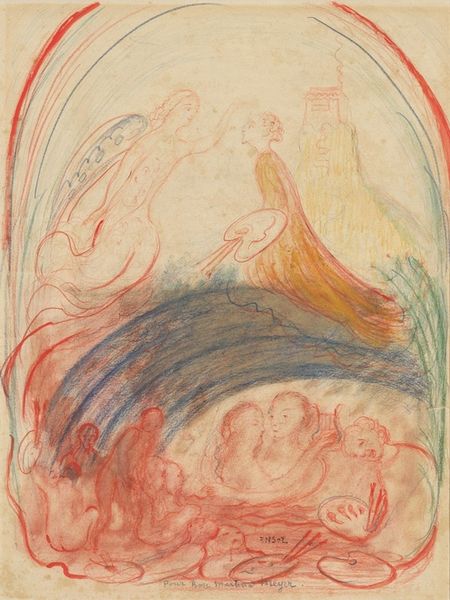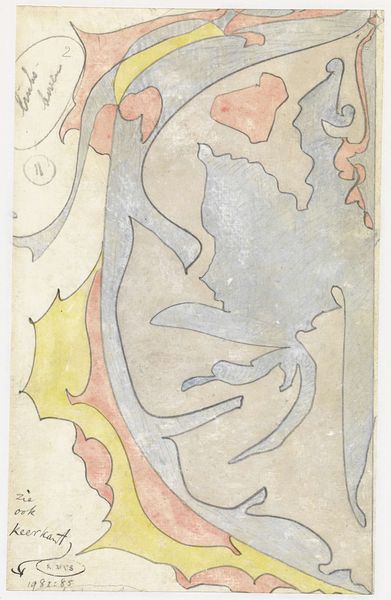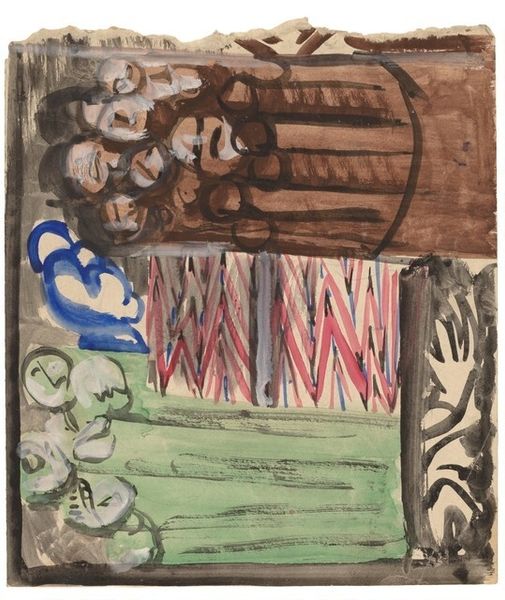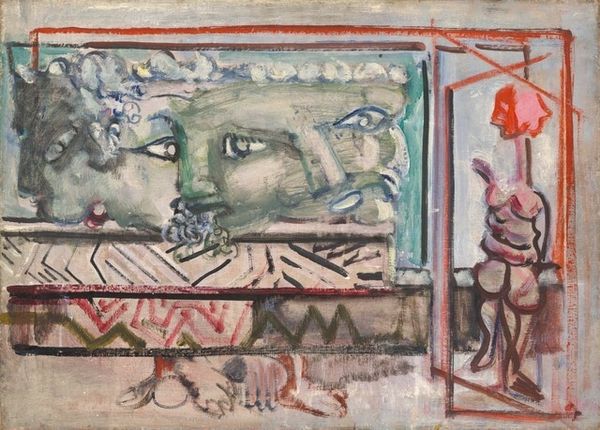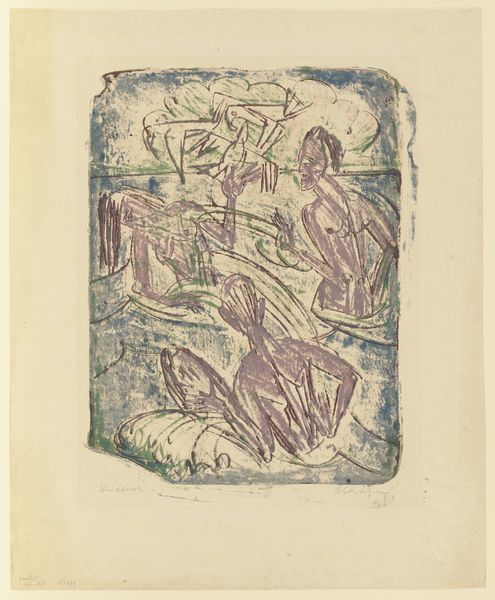
mixed-media, painting
#
mixed-media
#
painting
#
figuration
#
oil painting
#
acrylic on canvas
#
expressionism
#
abstraction
#
modernism
Copyright: National Gallery of Art: CC0 1.0
Curator: Standing before us is "Abstract Composition," an undated mixed-media painting by Mark Rothko. What are your initial thoughts? Editor: It’s undeniably intriguing, with its layering of forms in bold blues, reds, browns and whites. The overall impression is one of tension, almost as if the composition is about to break apart. Curator: I see that tension too, particularly in how the different colors seem to compete rather than harmonize. This work really speaks to Rothko's engagement with the legacy of modernism. Consider the period—a time ripe with artistic and social experimentation in Europe—how might this have influenced him? Editor: Definitely. The visual language feels deliberately fractured. There's this sense of the subject trying to emerge, struggling against abstraction. It calls to mind fragmented identities, perhaps reflecting on cultural and personal displacement, especially for a Jewish immigrant from Russia. Curator: Exactly! The expressive brushstrokes, and even what seems like an almost incomplete composition are really characteristic of the expressionist movement and even prefigures abstract expressionism which Rothko is well known for. We could connect these works to ongoing philosophical debates and trauma of the war. What kind of visual language can carry this kind of trauma, this destruction? Editor: I think that question resonates here. Considering the time frame when he came to the United States, we see a person navigating various structures in their new country—and reacting to global conditions that shaped what happened during and after both World Wars. His early subject matter really reflects on labor, the plight of marginalized people, mass violence. This period feels like a critical bridge to the well-known abstract paintings that followed. Curator: Precisely. Through the lens of contemporary theory, one could view these fractured forms as visual metaphors for societal divisions, or even the fracturing of the self in the face of modernity. Editor: It’s interesting how Rothko later moved toward pure abstraction, as if language, or even figuration failed him in capturing what he was experiencing or expressing in the face of these historical forces. It would seem this shift reveals even further how artworks have responded to, reflected, and shaped the times. Curator: So true, in "Abstract Composition," we find Rothko at a pivotal point, grappling with figuration while hinting at the pure, emotional abstraction to come. Editor: A glimpse into an artist’s transformative journey, revealing both the personal and the political through the powerful language of abstraction.
Comments
No comments
Be the first to comment and join the conversation on the ultimate creative platform.
